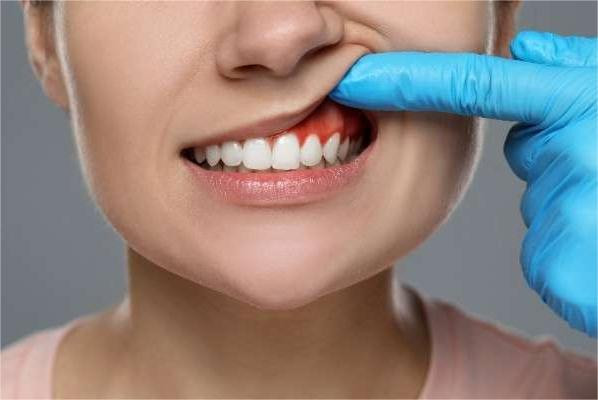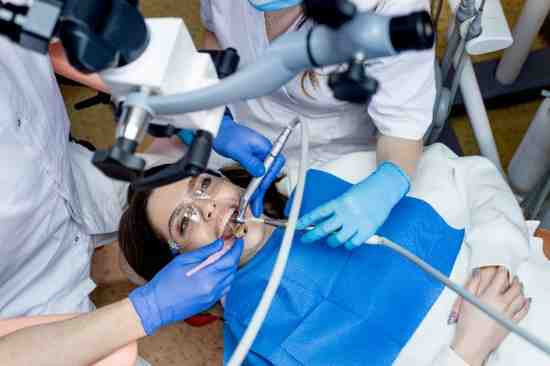Dental problems rarely wait for a convenient moment, and when they strike, they can throw your day or even your week into chaos. Whether it’s sudden pain, a broken brace, or a cracked tooth, it’s natural to feel unsettled. The good news? Acting fast and knowing the right steps can prevent bigger troubles and get your smile back on track sooner than you think. With a calm approach and the right support, even stressful dental situations can be managed smoothly and with confidence.
What Exactly Counts as a Dental Emergency?
- Tooth displacement or complete loss: If a tooth has been knocked out or shifted out of position after an accident, it’s urgent.
- Severe pain that won’t ease: Persistent, intense tooth pain, especially when accompanied by swelling, can signal infection or nerve involvement.
- Uncontrolled bleeding: Bleeding that doesn’t stop with simple pressure requires prompt care.
- Damaged orthodontic appliances causing injury or pain: Broken braces or wires poking into the gums or cheeks can cause wounds and discomfort that shouldn’t be ignored.
- Swelling of the face or jaw with pain: This may indicate an abscess or spreading infection.
- Difficulty swallowing or breathing: These signs require emergency medical intervention immediately.
Immediate Actions to Take Before Professional Help Arrives
Knowing what to do before seeing a dentist can greatly reduce pain and prevent further damage.
Handling a Lost Tooth
If a permanent tooth is knocked out, gently pick it up by the crown (the top part you see), avoiding the root. Rinse it in cold water but don’t scrub. If possible, try to place it back into the socket carefully, or keep it in a container of milk or saliva to keep it moist.
Managing Pain and Swelling
Use a cold compress on the outside of your cheek for 10-15 minutes intervals to reduce swelling and numb pain. Over-the-counter painkillers like ibuprofen or paracetamol can help, but avoid aspirin as it thins the blood and could worsen bleeding.
Temporary Care for Broken Braces or Wires
If a wire is causing irritation inside your mouth, orthodontic wax can be applied to smooth out the sharp edge. If you don’t have wax handy, sugar-free chewing gum can be a temporary fix. Avoid cutting wires yourself as this might lead to swallowing or inhalation hazards.
Controlling Bleeding
Apply gentle pressure with a clean cloth or sterile gauze to the bleeding area. Avoid rinsing your mouth forcefully as it may dislodge clots.

Understanding Common Problems: Broken Braces and Cracked Teeth
While braces are designed to align your smile over time, sometimes they themselves can cause emergencies.
Broken or Loose Braces
A snapped wire or loosened bracket can cause discomfort and even small injuries inside your mouth. Prompt contact with your orthodontist Wellingborough is important to prevent worsening damage. If you feel pain or cuts, a quick application of orthodontic wax and a phone call for an urgent appointment usually does the trick.
Cracked or Fractured Teeth
Teeth can crack due to injury, biting hard foods, or grinding. A small crack might not be painful but can weaken your tooth, so it’s worth checking. If you experience sharp pain while chewing or temperature sensitivity, it might be a sign of a deeper crack. In such cases, visiting an emergency dentist in Wellingborough quickly will help protect your tooth from further damage or infection.
How to Gauge the Urgency Based on Pain
Pain isn’t just unpleasant; it can tell you a lot about the seriousness of your dental problem.
- Mild or fleeting discomfort: Often manageable at home, but keep an eye on it.
- Sharp pain triggered by hot, cold, or biting: Signals nerve sensitivity or damage that needs checking soon.
- Persistent, throbbing pain: Usually points to infection or abscess and requires urgent dental care.
- Pain accompanied by swelling, fever, or difficulty swallowing: This is serious and demands immediate attention, possibly beyond dental care.
If pain escalates or lasts more than a day, don’t wait to contact an emergency dentist in Wellingborough for an assessment.
What Happens When You See an Emergency Dentist?
Visiting an emergency dentist in Wellingborough can be surprisingly straightforward. Here’s what you can expect:
Quick Assessment
Your dentist will take a detailed history of what happened and examine your mouth. X-rays or scans may be used to understand the problem beneath the surface.
Managing Your Pain First
Your comfort comes first. Local anaesthetic or pain medication will be used as necessary to ease discomfort.
Stabilising Your Condition
- Temporarily patching a broken tooth
- Smoothing or securing broken braces
- Draining an abscess
- Extracting a severely damaged tooth
Planning Next Steps
Often, emergency treatment is the first phase. Your dentist might refer you to an orthodontist Wellingborough or specialist for follow-up care, especially if orthodontic appliances are involved.
How to Avoid Future Dental Emergencies
- Maintain regular dental check-ups to catch issues early.
- Wear a mouthguard during sports or activities that risk facial injury.
- Avoid hard, sticky, or overly crunchy foods that can damage teeth or braces.
- Follow your orthodontist Wellingborough’s advice carefully, especially about eating and cleaning.
- Practice excellent oral hygiene with twice-daily brushing and daily flossing.
Finding the Right Emergency Dentist and Orthodontist in Wellingborough
In a dental emergency, knowing who to call can save precious time and reduce anxiety. An emergency dentist in Wellingborough specialises in rapid, effective care for urgent problems. They focus on pain relief, stabilising damage, and preventing complications.
For issues related to braces or alignment, your orthodontist Wellingborough will guide you through repairs or adjustments. Keeping their contact details handy means you’re prepared should a broken brace or wire cause a problem.
Conclusion
Dental emergencies can feel overwhelming, but swift, sensible actions help you stay in control and protect your smile. Recognising what truly needs urgent care, managing pain calmly, and turning to trusted professionals like your emergency dentist and orthodontist in Wellingborough means less stress and a speedier recovery. Being prepared and informed ensures your smile stays healthy and happy no matter what surprises come your way.




